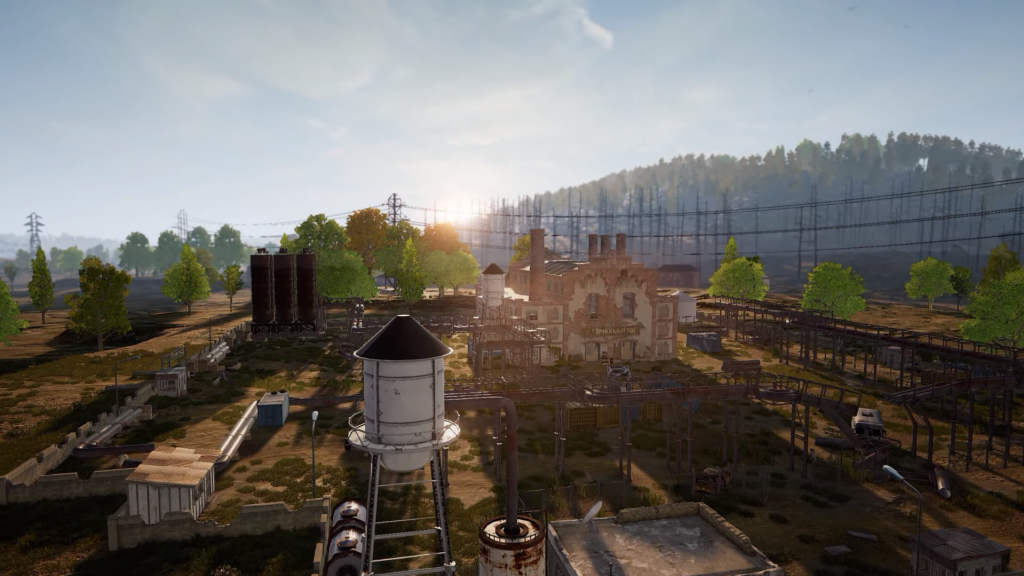
While it isn’t uncommon for esports organisations to release rosters, change their focus or pin their hopes on newer titles, the exodus of big names from PUBG has shown little sign of slowing down as 2020 plans finally come to light.
Last ones standing
Ghost Gaming becomes the latest organisation to withdraw from the battle royale title following a lukewarm result at the PUBG Global Championship 2019. Coach Michael “Jabroni” Cecerei put out a series of Tweets explaining why the recent announcement was a step backwards for the scene rather than what it truly needed.
PUBG’s announcement in my opinion.
— Jabroni (@Jabroni) December 10, 2019
No team skins.
No partnership with organizations.
Open qualifier for majors = less consistency.
No more pro leagues.
Personally, this is a return to 2018. Leagues seemed to be a waste of money….
@GlobalLoot can be back which is dope
Cloud9 had one of the strongest North American PUBG rosters with a guaranteed spot at the PUBG Global Championship before it chose to release its players earlier this year.
Despite retaining a spot in the PUBG Europe League next year, Pittsburgh Knights has ‘temporarily withdrawn’ from the scene, with AVANGAR, eUnited, Spacestation Gaming, Player One Esports and Team Vitality all also withdrawing with no signs of interest for some time now.
CrowCrowd acquired Winstrike Team’s roster but they have released the Finnish squad in recent days.
Due to the PUBG Europe League system recent cancellation and its replacement in 2020 with the PUBG Global Series, we made a difficult decision to go apart with our Finnish squad.
— CrowCrowd (@crowcrowded) December 11, 2019
👉 @SaunaboisPUBG
More 📝 https://t.co/qCBEyKR4pQ#PUBG#PELpic.twitter.com/LnuQz31T6P
The list of names still invested in the game still includes FaZe Clan, G2 Esports, Natus Vincere, Team Liquid and TSM but the landscape is dominated by smaller names that benefited from PUBG Corp. offering housing and travel support to competing teams that limited the costs of picking up a team.
In its 2020 plans, the removal of the Pro League system in favour of four global events fed into by six regional qualifiers no longer require player residence means this assistance will likely no longer be provided.
It has more frequently been the poor performance of PUBG Corp. rather than PUBG players that has caused so many to step back from the esport title in the last year.
Hack and slash
While every esport has the potential to be rocked by cheating, matchfixing or other scandals, PUBG Corp. notably had to pull a qualification spot from Phase 3 of the Southeast Asia Championship due to “the inability to maintain competitive integrity at the event.”
Due to the inability to maintain competitive integrity at the event, the MET Asia Series: PUBG Classic will no longer award a wildcard slot for PGC.
— PUBG Esports (@PUBGEsports) July 28, 2019
At the end of 2018, four professional players, Mark “Tefl0n” Formaro, Christian “Cuhris” Narvaez, Tyler “DevowR” Sti and Liam “Liammm” Tran, had been banned in-game permanently.
They were subsequently banned from competitive play for three years after being found to have used “unauthorized third party software.” A further dozen individuals were then banned in the new year.
With at least 15 million players banned from PUBG servers, the issue of cheating might not have a particularly prominent impact on the pro scene generally but the image issues and concerns it might raise from organisations and investors could well have a knock-on effect.
Revenue share opportunities are one of the big draws PUBG Corp. have used to generate interest but these have not always delivered.
2020 will see no team skins, no organisation partnership and likely no financial bonus provided to support teams. In-game items for each PUBG Global Series event like those at the PGC are a far cry from the specific team skins implemented for the PUBG Global Invitational 2018.
PUBG’s (maybe) got talent
Organisations and players aren’t the only ones that feel let down by PUBG Corp. heading into 2020.
Numerous people have raised concerns over the poor communication between them and the publisher including commentator Lauren “Pansy” Scott, leaving them in the dark as to when or even whether they will be attending the upcoming PUBG Global Series events.
Hey
— Lauren Scott 🎃 (@pansy) December 10, 2019
Still no idea what I’m gonna be casting in 2020.
Can #PUBG hurry up and let a girl know.
Thanks.
With such poor communication and diversions from what has been promised, PUBG esports in 2020 might just need a miracle to remain a relevant title in the scene and avoid a fall from grace that confines the title to the past like H1Z1 before it.
As Apex Legends looks primed to step up its esports efforts and Fortnite continues to shine as a cultural phenomenon, PUBG Corp. will need more than format changes to impress.
Matt Dillon, CEO of Ghost Gaming, explained that “without revenue share & a real effort to monetize the game from the Devs there isn’t a reason to invest” and if the big names leave, the hardcore remaining fanbase won’t be enough to keep the scene alive to see out the full five-year esports plan.
Organisations withdrawing have very little incentive to return with the 2020 plans and it wouldn’t be surprising to see other names join the growing list on which Ghost now resides.